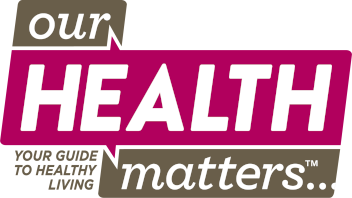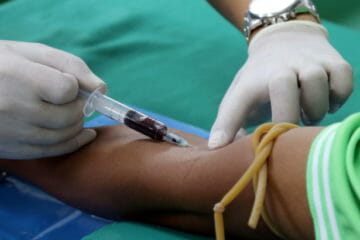Why Are So Many Younger People (18-49) Being Diagnosed with Cancer?
By OHM Staff
A growing number of young adults between the ages of 18 and 49 are being diagnosed with “early-onset” cancers, a troubling trend that can be attributed to a complex interplay of a variety of factors.
Societal trends and cultural shifts have influenced the prevalence of risk factors associated with cancer in younger adults. Changes in tobacco use patterns, alcohol consumption habits, dietary preferences and exposure to ultraviolet radiation have all contributed to alterations in cancer risk profiles among individuals in this age group.
Understanding the root causes behind this increase requires an examination of the many influences that contribute to the development of cancer at a younger age.
LIFESTYLE
Unhealthy lifestyle choices play a significant role in the rising incidence of early-onset cancers. Poor dietary habits characterized by high consumption of processed foods, sugary beverages and red or processed meats, coupled with insufficient intake of fruits, vegetables and whole grains can contribute to an increased cancer risk. Additionally, lack of physical activity, sedentary behaviors, smoking and excessive alcohol consumption are known risk factors for various types of cancer.
Making lifestyle changes can help reduce the risk of cancer. Here are some key changes to consider:
HEALTHY DIET:
- Eat a variety of fruits, vegetables, whole grains and lean proteins.
- Limit processed foods, red meats and sugary drinks.
- Maintain a healthy weight.
REGULAR EXERCISE:
- Aim for at least 150 minutes of moderate aerobic activity or 75 minutes of vigorous activity each week.
- Include strength training exercises at least twice a week.
AVOID TOBACCO:
- Quit smoking and avoid exposure to secondhand smoke.
- Use resources and support programs to help quit if needed.
LIMIT ALCOHOL:
- If you drink alcohol, do so in moderation (up to one drink per day for women and two for men).
SUN PROTECTION:
- Use sunscreen, wear protective clothing and seek shade to reduce UV exposure.
- Avoid tanning beds.
REGULAR SCREENINGS:
- Get recommended cancer screenings (e.g., mammograms, colonoscopies) based on age and risk factors.
VACCINATIONS:
- Get vaccinated against certain viruses that can lead to cancer, such as HPV and hepatitis B.
MANAGE STRESS:
- Practice stress-reduction techniques such as mindfulness, meditation or yoga.
STAY HYDRATED:
- Drink plenty of water and limit sugary beverages.
SLEEP WELL:
- Aim for 7-9 hours of quality sleep per night.
Incorporating these lifestyle changes can significantly decrease the risk of developing various types of cancer. Always consult with a healthcare provider for personalized advice and recommendations.
Obesity
The global obesity epidemic has emerged as a major driver of cancer incidence across all age groups, including young adults. Excess body weight is associated with a heightened risk of developing several types of cancer, such as colorectal, breast, endometrial and pancreatic cancer. The metabolic changes associated with obesity, including chronic inflammation and altered hormone levels, create an environment conducive to cancer development.
Environmental Factors
Exposure to environmental carcinogens (any agent that promotes the development of cancer) presents a significant risk for the development of cancer at a younger age. Environmental pollutants, occupational hazards, ionizing radiation and chemicals present in everyday products can all contribute to the initiation and progression of cancer. Increased urbanization, industrialization and deforestation (large scale destruction of trees) affects ecosystems and climate
and even increases risk for infections that are spread between people and animals. This heightened human exposure to environmental toxins further worsens the risk of early-onset cancers.
Genetic Predisposition
Genetic predisposition plays a crucial role in the development of cancer, particularly in cases of early-onset disease. Inherited genetic mutations such as
BRCA1 and BRCA2 mutations in breast and ovarian cancer, Lynch syndrome in colorectal cancer and RET mutations in thyroid cancer can significantly elevate an individual’s risk of developing cancer at a young age.
What are inherited genetic mutations? If a parent carries a gene mutation in their egg or sperm, it can pass to their child. These hereditary mutations are in
almost every cell of the person’s body throughout their life. Some hereditary mutations are those that cause cystic fibrosis, hemophilia and sickle cell disease.
What can someone do to detect their risk for an inherited genetic mutation?
Family History Assessment. Learn about family medical history to identify any patterns of genetic diseases or conditions that may indicate inherited mutations.
Genetic Counseling. Consult a genetic counselor who can provide information about genetic testing options and help assess risk based on family history.
Genetic Testing. Consider undergoing genetic testing, which can be done through:
- Blood Tests. Samples are taken from the individual to analyze DNA.
- Saliva Tests. Cheek swabs or saliva samples can also be used for genetic analysis.
- Targeted Testing. If there is a known mutation in the family, targeted tests can specifically look for that mutation.
- Whole Exome or Whole Genome Sequencing. For a broader analysis, whole exome sequencing (which focuses on protein-coding regions) or whole genome sequencing can be performed.
Review Test Results. After testing, it’s important to discuss results with a healthcare provider or genetic counselor to understand the implications.
Lifestyle and Monitoring. If a mutation is detected, individuals may need to adopt certain lifestyle changes or undergo regular monitoring for associated health conditions.
Support Groups. Joining support groups for individuals with similar genetic conditions can provide helpful resources and community support. These steps can help someone determine their risk of having inherited genetic mutations and understand the potential health implications.
Delay in Diagnosis
Young adults may face unique challenges in accessing timely cancer diagnosis and treatment. Symptoms of cancer in this age group may be mistaken for less serious conditions or may be overlooked altogether, leading to delays in diagnosis and treatment initiation. Limited awareness of cancer risk factors and screening
guidelines among healthcare providers and patients can also contribute to diagnostic delays in young adults.
How Can this Trend Be Slowed?
Education. It is important to educate younger adults and promote awareness about signs and symptoms of cancer risk factors. Primary care physicians should be encouraged to be more proactive in screening high risk patients.
Improved Diagnostic Techniques. Advances in medical technology and diagnostic methods or processes have led to earlier detection of cancers in young adults, potentially contributing to the observed increase in early-onset cancer diagnoses.
Improved imaging techniques, genetic testing capabilities, and screening programs have enhanced healthcare providers’ ability to identify cancer at earlier stages, offering young adults a better chance at successful treatment outcomes.
Younger patients should be their own advocates by asking questions and requesting screenings based on their symptoms and family history.
Manage Stress and Mental Health
The impact of chronic stress, anxiety and poor mental health on cancer risk cannot be overlooked. Young adults today face unique stressors, including academic pressures, financial burdens, career uncertainties and social challenges, which can contribute to physiological changes that increase susceptibility to cancer. The intricate interplay between the mind and body underscores the importance of addressing mental health as a crucial component of cancer prevention and management strategies.
The rising incidence of early-onset cancers in adults aged 18 to 49 is affected by a combination of lifestyle factors, environmental influences, genetic predisposition, healthcare challenges and societal trends. Addressing this concerning trend requires different views and approaches that includes public health education and interventions, individual behavior modifications, genetic counseling, early detection screening and holistic healthcare strategies.
Increased health promotion to younger audiences and early adoption of preventive methods aimed at promoting overall well-being and reducing cancer risk among young adults is a good start.
Source: American Academy of Pediatrics,
https://www.aap.org






